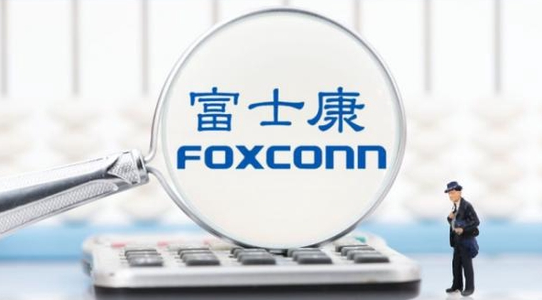Government information
Foxconn will invest billions of dollars to build a chip factory in Malaysia to produce 40,000 wafers per month

Sina Technology News Beijing time on the evening of May 17th, according to reports, Foxconn plans to build a chip manufacturing plant in Malaysia to meet the strong demand for semiconductors used in electric vehicles.
Today, Foxconn, through a subsidiary, signed a memorandum of understanding with Malaysian technology company Dagang NeXchange Berhad. The two parties intend to set up a joint venture to build and operate a 12-inch chip factory in Malaysia.
The move represents another major step forward in Foxconn's expansion into semiconductors and a key step in advancing its electric vehicle ambitions. Foxconn owns about 5 percent of Dagang NeXchange Berhad and has a seat on the board. This also means that Foxconn indirectly controls the chipmaker Silterra's 8-inch chip factory in Malaysia. Silterra is a subsidiary of Dagang NeXchange Berhad.
Before Malaysia signed the memorandum, Foxconn announced in February this year that it would build a chip factory in India with Vedanta, an Indian natural resources group. Last year, Foxconn also acquired a chip factory in Hsinchu, Taiwan, to develop silicon carbide chips for cars.
The planned Malaysian factory is expected to produce 40,000 chips per month, including 28nm and 40nm processes, which are also the most widely used chip production technologies for microcontrollers, sensors, driver integrated circuits and connectivity-related chips, including Wifi and Bluetooth . Currently, major chipmakers such as TSMC, United MicroElectronics Corp and SMIC are expanding their production capacity for 28nm chips.
The exact location of the Malaysian factory and the size of the investment have not yet been announced. But chip industry executives expect the project could cost $3 billion to $5 billion in capital expenditures, depending on planned capacity and the technology involved.
Today, Southeast Asia has become a popular destination for chipmakers to expand production capacity. GlobalFoundries, the world's third largest chip foundry, is spending US$4 billion to expand production capacity in Singapore, and the fourth largest chip foundry, United Microelectronics, recently announced that it will spend US$5 billion to build another factory in Singapore.
At the same time, Infineon, Europe's largest chip maker, is investing 2 billion euros to expand its manufacturing plant in Kulim, Malaysia, to produce "power semiconductors," key components of electric vehicles.

